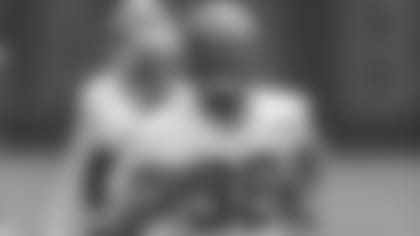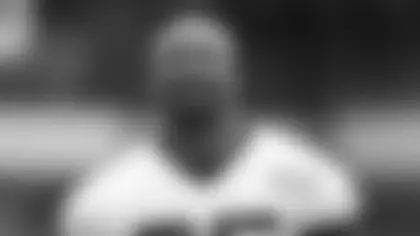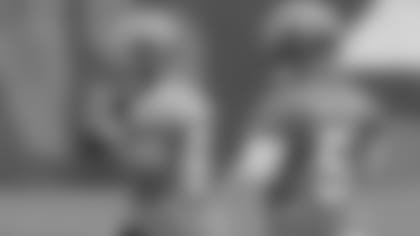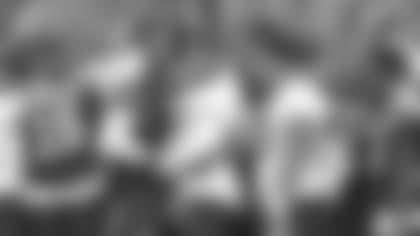On how LB Craig Robertson looked in his first few days back at practice:
"It was good, good. We took it slow with him. Started with the straight line stuff, he was ahead of the curve, and then his change of direction looked good, too. It's all positive with Craig."
On the Browns will reevaluate how Robertson feels pregame:
"Yeah, I have to circle back with (head athletic trainer) Joe (Sheehan) this afternoon just to see the aftermath of how these guys feel. A lot of times, it's based on how they are afterwards."
On if there is a league update on QB Duke Johnson Jr.:
"No."
On if Manziel will be the No. 2 QB on Sunday:
"More than likely, yeah."
On the run defense in practice this week:
"I think it was easy to get our guys' attention when they watched the film. What we're up against, this is a legit group from their tight ends to their offensive line. Then, you put three pretty good backs behind it, one in particular in (Rams RB Todd) Gurley. As coaches, you didn't have to do much, say much; the film speaks for itself. They know it's a challenge. Being competitive guys, they know that they're going to have to step up and play our best game from a fundamental standpoint against the run in order to be successful."
On if chemistry factors into the issues on defense:
"I think it can be a factor. I don't know how big. I'm not going to say that's not the case, but that's one of the downsides. It's a double minus when you get an injury. Not only do you not have that player, now you have somebody new in there that for the exact reason that you talk about. Whatever word you're going to use, 'chemistry,' 'cohesion,' the communication part of it, the trust, that's part of it, I don't know how much of it is, though, but I'd agree that's a factor."
On crediting some of the defensive issues to multiple injurie, specifically to the secondary early in the season:
"You're going to be optimal when you have your guys out there all playing together, that's well known. We're not going to use that as an excuse. That's why I always tell the staff that coaches are measured – it's just as important that we see how prepared their backups are and how they play as opposed to just the starters. A lot of teams go through this. It's a set of circumstances that we have to deal with."
On if the run defense's scheme is too complicated and that players have to think too much:
"No, no we've been running these calls not just here in Cleveland but other places. A lot of the stuff we're doing is Day 1 install. I think guys start to press and search for answers, and if that gets into their head, and they feel like they're thinking too much, we try to declutter, defensively. You simplify it. You break it down to win your one-on-one match up. When in doubt, whip the guys' tail across from you, then we'll find a way to make it right behind you. We don't teach defense like a golf swing – put your thumb here, put the ball located here and you want to get the club. That's not how we coach it."
On if people are searching for a reason to rationalize the run defense's struggles:
"Could be. I'm not sure of the context of it. I just know that we haven't changed the way that we teach it. It's simpler for some positions than others. We haven't increased the scheme workload in order to stop the run. We know we have calls to do it, but we need to execute."
On his comments that coaches at times have to scale back some elements with certain players to maximize results:
"Yeah, and that's on the position coach. That's a big part of coaching is understanding your players and how do they learn. Are they visual learners? Do they have to walk through it? Can they get it in the classroom? That's on us as coaches to get it taught. I do know from a call sheet standpoint that so far this year, if you just took the number of calls per gameplan, we're a notch lower than we were last year and even other places we've been."














